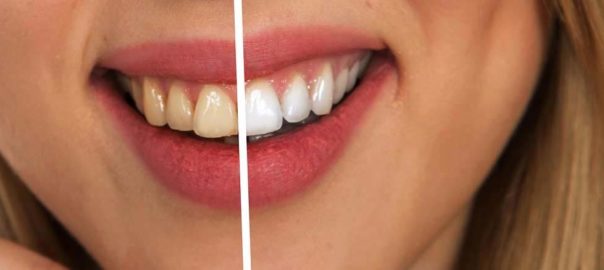There are many myths about teeth whitening, but in this article, we will point out 9 things dentists wish you knew about teeth whitening.
What is tooth whitening?
Tooth whitening consists in clarifying, in a few shades, the color of the teeth. In this way and after following the recommendations of your dentist, you will get whiter and brighter teeth.
If you are thinking about having a teeth whitening, maybe these 9 points interest you to read them.
1. Does whitening damage or affect tooth enamel?
It is very common that before starting the whitening patients ask us this question since they are afraid of damaging their teeth. It is true that whitening without the supervision of a professional, an adequate diagnosis and treatment plan can cause damage to the dental structure, causing the tooth to weaken and wearing little by little. That is why it is so important to attend the assessment appointment with a professional, follow the instructions and attend the control appointments.
2. Can I whiten my teeth with baking soda?
Baking soda is quite abrasive material, so it should not be used in the dental surface. It provides some bleaching effect by wearing away the enamel surface of the tooth but not eliminating internal pigmentation and causing pain and tenderness.
3. Does the bleaching last for a lifetime?
Teeth whitening does not last forever, but it will depend on the patient’s habits and their monitoring of the dentist’s instructions. Smoking patients, who drink coffee, tea or wines will have a shorter duration of treatment compared to those who do not regularly consume this type of beverage. The good oral hygiene they have after the treatment is also influenced.
4. Can whitening cause gum disease?
If the material we use to whiten teeth is not placed in its correct position and the right amount, teeth whitening treatment could irritate the gum area.
This is why it is important to apply it properly according to the dentist’s instructions and in the appropriate percentage.
5. Does teeth whitening cause pain?
Teeth polishing treatment itself should not cause pain, it can cause sensitivity which will last a maximum of 2 to 3 days and can be prevented if an adequate diagnosis and treatment plan is made, so it is important to do it with a professional and follow the indications. In the case of presenting it should disappear in a maximum of 3 or 4 days.
6. Can anyone have a teeth whitening?
Pregnant women, breastfeeding or under 16 years of age are not patients eligible for this treatment. It will be the dentist after the evaluation and the diagnosis who will decide if there are no other pathologies such as caries, fissures, diseases associated with the gums that prevent or delay the performance of such treatment.
7. Can homemade products or what I buy at the supermarket also whiten my teeth?
Chewing gum, pastes or rinses containing bleaching ingredients have a concentration close to 1% and therefore are not effective enough to provide results similar to those achieved in the clinic.
8. Is laser whitening bad?
This doubt is very frequent in patients, so it is important to clarify that the laser as such is not bad but its use is delicate and should be by the dentist since when emitting light and heat it can irritate the dental pulp. This is why the diagnosis is important since not all patients are suitable for this type of bleaching.
The objective of the laser is to accelerate the penetration of the whitening products inside the tooth allowing us to shorten the time of the sessions but they do not bleach the teeth alone. There must be correct handling of the product and the treatment by the professional.
9. Do teeth whiten in a single session with LED?
This depends entirely on the initial tone of the teeth and the objective of the patient if results can be obtained from the first session and some patients do not need to prolong the treatment more than one.
What are the causes of dental darkening?
There are intrinsic stains, spots created before the tooth erupts and are created because of some antibiotics. Also, those that arise in the tooth due to blows or fractures. In addition, extrinsic stains, established by the intake of some foods or beverages.
Tooth whitening can be performed in a dental clinic with a product of high whitening concentration or at home with a product of less concentration, as long as you follow the instructions of your dentist.

